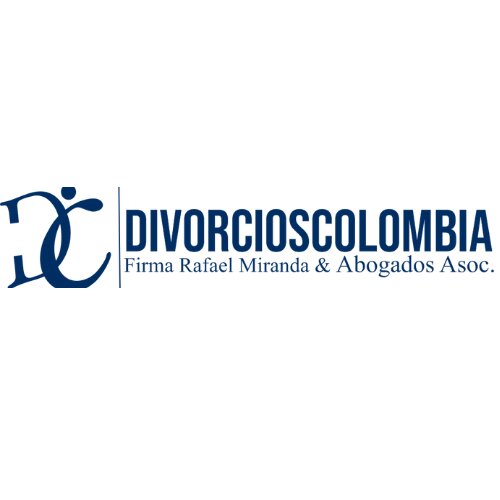Best Child Visitation Lawyers in Colombia
Share your needs with us, get contacted by law firms.
Free. Takes 2 min.
Free Guide to Hiring a Family Lawyer
Or refine your search by selecting a city:
List of the best lawyers in Colombia
About Child Visitation Law in Colombia
Child visitation laws in Colombia are designed to ensure that children maintain meaningful relationships with both parents, even when those parents are no longer together. The Colombian legal framework emphasizes the child's best interests, ensuring that visitation arrangements are fair and conducive to the child's well-being. Parents are encouraged to reach amicable agreements, but if they cannot, the courts will intervene to establish visitation rights, considering factors such as the child's age, health, and emotional needs.
Why You May Need a Lawyer
There are several scenarios wherein you might require legal assistance concerning child visitation in Colombia. These include disputes over visitation schedules, attempts by one parent to deny the other access to the child, international child visitation issues, or cases of potential child endangerment. A lawyer can help interpret the law, represent your interests in court, mediate negotiations, and ensure that any agreements are legally binding.
Local Laws Overview
Colombian family law, governed primarily by the Children's and Adolescents' Code (Law 1098 of 2006), outlines the responsibilities and rights of parents regarding children, including visitation. Key aspects include the 'best interest of the child' principle, which guides all legal decisions regarding minors, and the requirement that any visitation agreement must support the child's physical, cognitive, emotional, and social well-being. Additionally, the law provides mechanisms for altering visitation agreements if circumstances change.
Frequently Asked Questions
What is the process for establishing child visitation rights in Colombia?
Parents can agree on a visitation schedule and have it approved by a family judge. If an agreement isn't possible, a court will determine the schedule based on the child's best interests.
Can visitation rights be modified?
Yes, changes in the child's needs or the parent’s circumstances can lead to modifications. A request for modification can be submitted to a family judge.
What happens if one parent refuses to comply with the visitation schedule?
If a parent fails to comply, the other parent may file a complaint with a family court, which can enforce the agreement or impose sanctions.
Are grandparents or other relatives entitled to visitation?
While parents are the primary focus of visitation rights, other relatives can petition the courts for visitation if it benefits the child’s welfare.
How does visitation work in cases of domestic violence?
Visitation in such cases is carefully regulated. The courts may require supervised visits or establish measures to ensure the child's safety during visitations.
Are visitation rights impacted if a parent moves to another city or country?
Yes, the existing visitation agreement might need adjustments to accommodate the new circumstances. Cross-border issues can involve more complex legal processes, including international treaties.
What should I do if my ex-partner is trying to alienate my child against me?
Parental alienation is taken seriously in Colombian courts. Legal action can be initiated to safeguard the child’s relationship with both parents.
What role does a psychologist play in visitation disputes?
A psychologist may evaluate the child’s needs and the family dynamics, providing a report to the court, which can influence visitation decisions.
Can visitation be denied if child support is not paid?
No, visitation and child support are separate issues. A parent cannot be denied visitation for failing to pay child support, but legal action can address outstanding support payments.
How can I ensure the visitation order is enforced?
If the other parent does not comply, you can return to court to seek enforcement, including sanctions or adjustments to the arrangement if necessary.
Additional Resources
Several resources can aid those seeking help with child visitation issues in Colombia. The Colombian Family Welfare Institute (ICBF) offers support and mediation services. Local family courts provide legal guidance, and non-governmental organizations, like Casa de la Mujer, offer advice and advocacy for families going through legal disputes. Consulting a specialized family lawyer can also be invaluable.
Next Steps
If you need legal assistance with child visitation, consider the following steps: gather all relevant documentation regarding your case, consult with a family lawyer experienced in Colombian law, explore mediation services through ICBF, and prepare to present your case to a family court if necessary. It's essential to act in a manner that prioritizes the child's best interests while securing your visitation rights.
Lawzana helps you find the best lawyers and law firms in Colombia through a curated and pre-screened list of qualified legal professionals. Our platform offers rankings and detailed profiles of attorneys and law firms, allowing you to compare based on practice areas, including Child Visitation, experience, and client feedback.
Each profile includes a description of the firm's areas of practice, client reviews, team members and partners, year of establishment, spoken languages, office locations, contact information, social media presence, and any published articles or resources. Most firms on our platform speak English and are experienced in both local and international legal matters.
Get a quote from top-rated law firms in Colombia — quickly, securely, and without unnecessary hassle.
Disclaimer:
The information provided on this page is for general informational purposes only and does not constitute legal advice. While we strive to ensure the accuracy and relevance of the content, legal information may change over time, and interpretations of the law can vary. You should always consult with a qualified legal professional for advice specific to your situation.
We disclaim all liability for actions taken or not taken based on the content of this page. If you believe any information is incorrect or outdated, please contact us, and we will review and update it where appropriate.
Browse child visitation law firms by city in Colombia
Refine your search by selecting a city.















